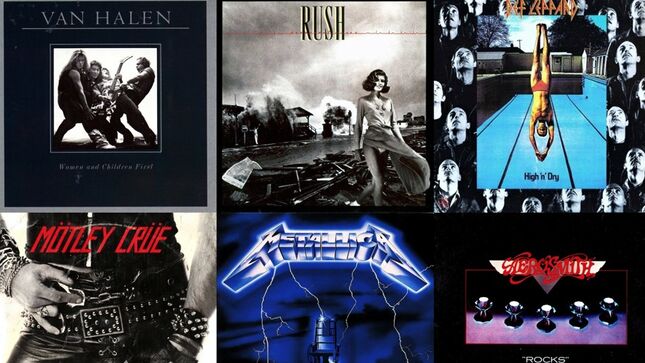
By Tim Coffman
Every one of the greatest artists of all time tends to have that one record that stands out from the pack. Even if they are more singles artists or about enjoying the album as a whole, these are the flawless masterpieces that everyone points to when they want to hear the best of what the genre has to offer. That’s the public opinion though, and the actual good stuff runs a lot deeper than the most popular album. Although these records aren’t necessarily the million selling albums that most people like to praise to high heaven, they are equal in musical stature, having the same teeth that come from their more popular brethren but without any of the compromising that they needed to get through.
If you ever want to get to the top of the mountain, you’re going to need to cut corners along the way. Not for these albums though. These are all killer no filler from back to front and can still be enjoyed outside of the radio rock of the world. Any band can hope to rock the world once over, but it takes a special act to have albums that are this strong flying under the radar as well.
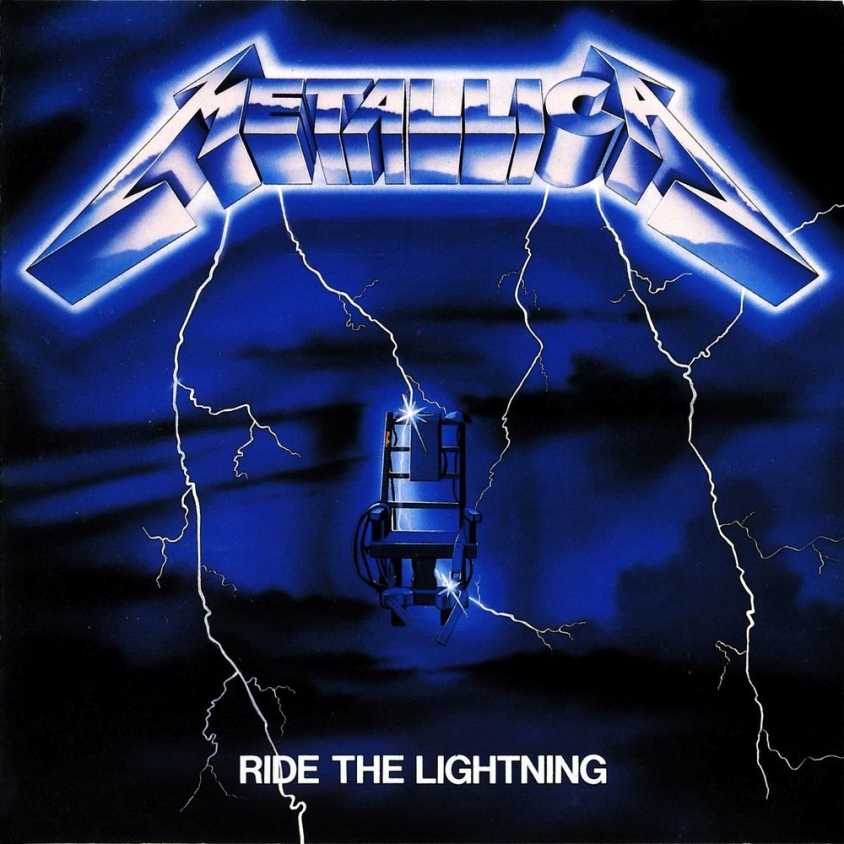
Metallica – Ride The Lightning (Megaforce)
For as much classic metal that Metallica have pumped out, there’s never really been a dull moment. Even though both Master of Puppets and The Black Album have revolutionized what metal has meant to the greater public, there are just as many albums that people want to take a stake to, like the harmful sounds of St. Anger or them cutting their hair during the Load period. Before they even had something like Puppets under their belt though, Ride The Lightning is where everything came together for the first time. Which is strange because there’s actually a lot that Ride has in common with Master, from the ballad “Fade To Black” to the epic opening track with “Fight Fire With Fire.” Coming right off of Kill Em’ All though, this is Metallica slowly reaching their final form, only being held down by the song “Escape,” which was thrown together in one day because the label wanted a more mainstream sounding song.
Outside of that one track though, this is one of the most musically sophisticated albums the band would make, putting together riffs made of concrete on “Trapped Under Ice” and the title track, giving Cliff Burton a chance to flex his chops on “For Whom The Bell Tolls,” and even twisting some of the leftovers from the Dave Mustaine days into something even more crushing on “The Call Of Ktulu,” which features some of the best instrumental work that the band would ever commit to tape. Master of Puppets may be looked at as the better back to front experience, but if you swapped “Escape” for their cover of Diamond Head’s “Am I Evil,” you might be looking at the best album to come out of the thrash genre.
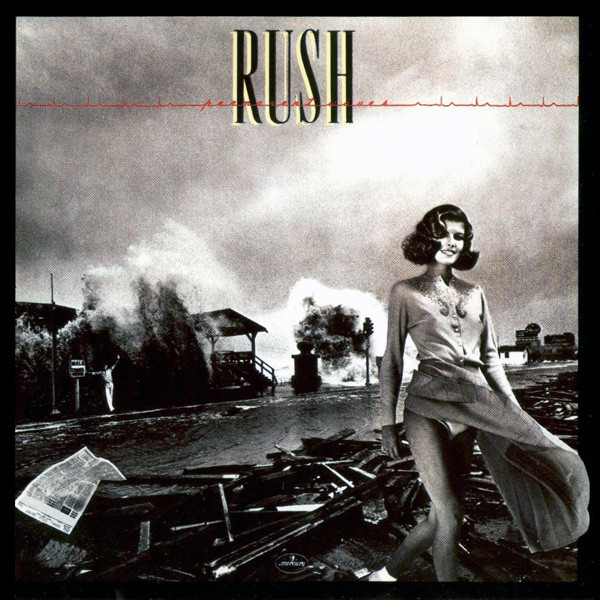
Rush – Permanent Waves (Mercury / Anthem)
As Geddy Lee said years ago, Rush tended to have their own stream completely separate from the mainstream. While prog rock has never really been in vogue on the charts that much, the Canadian power trio have earned the title of the most popular cult band in the world, with every fan having a borderline obsessive attention to detail whenever they played live. The sound of “Tom Sawyer” may have got them the best chart action they would ever see, but some of the best moments in their discography actually go back one year before. Right after ditching the complex song structures of Hemispheres, Permanent Waves is the first album where Rush tried to have songs with a more succinct flow to them, bringing in the keyboards more prominently on songs like “Jacob’s Ladder.”
Even with some of their more accessible material on this album, a song like “Spirit Of Radio” is still full of little bite sized moments of progressive music, from the bluesy as hell riff that goes into the verses to the reggae breakdown that happens halfway through the song and completely flips the tune around. And while Rush were never known for their lyrical heft or anything, this might be one of the more emotional records that they would ever create, writing songs like “Freewill” and “Entre Nous” trying to describe the freedoms that we have as humans and how we’re able to truly relate to each other in the modern age. Rush were never going to be the coolest band in your record collection, but this was the first time it actually felt like they might actually get played on the radio.
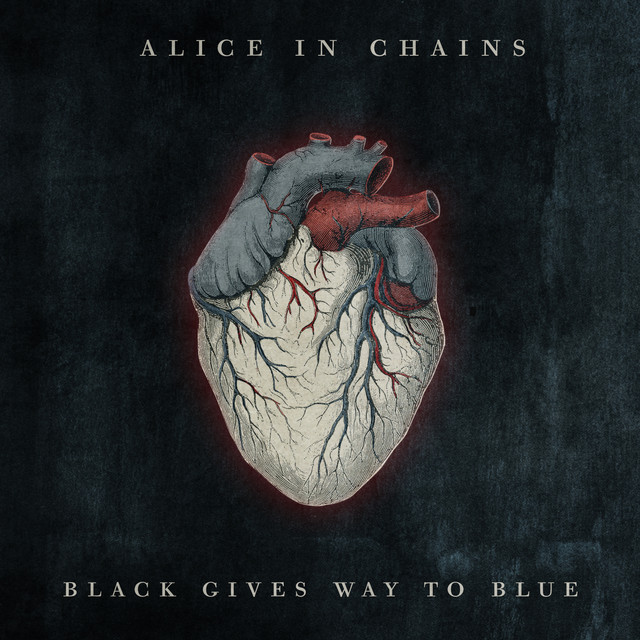
Alice In Chains – Black Gives Way To Blue (Virgin)
There’s a good case to be made that the best stuff Alice in Chains ever recorded had to be with Layne Staley. Without his voice providing the emotional backbone, the band wouldn’t have been half as good as it was, with Dirt being a dark look into what happens when someone falls down the rabbit hole of heroin and doesn’t see the light at the end of the tunnel. It would have been completely understandable for Alice to hang things up once Layne died, but what turned up on Black Gives Way to Blue feels like you’re listening to a band reborn.
Even though William DuVall isn’t a Layne clone by any stretch of the imagination, his way of inhabiting these songs is a lot more natural than what we would have gotten with a straight ahead replacement, as Jerry Cantrell picks up right where he left off on songs like “Check My Brain” and “All Secrets Known.” Being over a decade since the last album, Black is basically a stockpile of everything Alice were known for, taking the savage sounds of Facelift on “Private Hell,” getting to jam a little more on “A Looking In View,” and even breaking out the acoustics again on “Your Decision” and “When the Sun Rose Again.” There are even some spots where we got what we didn’t know we wanted, like “Last of My Kind” giving DuVall center stage to flex his screaming chops and the title track closing the chapter on Layne’s legacy with Elton John behind the piano. Most of the Big 4 of grunge might not have survived, but Black Gives Way To Blue is the story of a band starting from scratch and rediscovering their love of music.
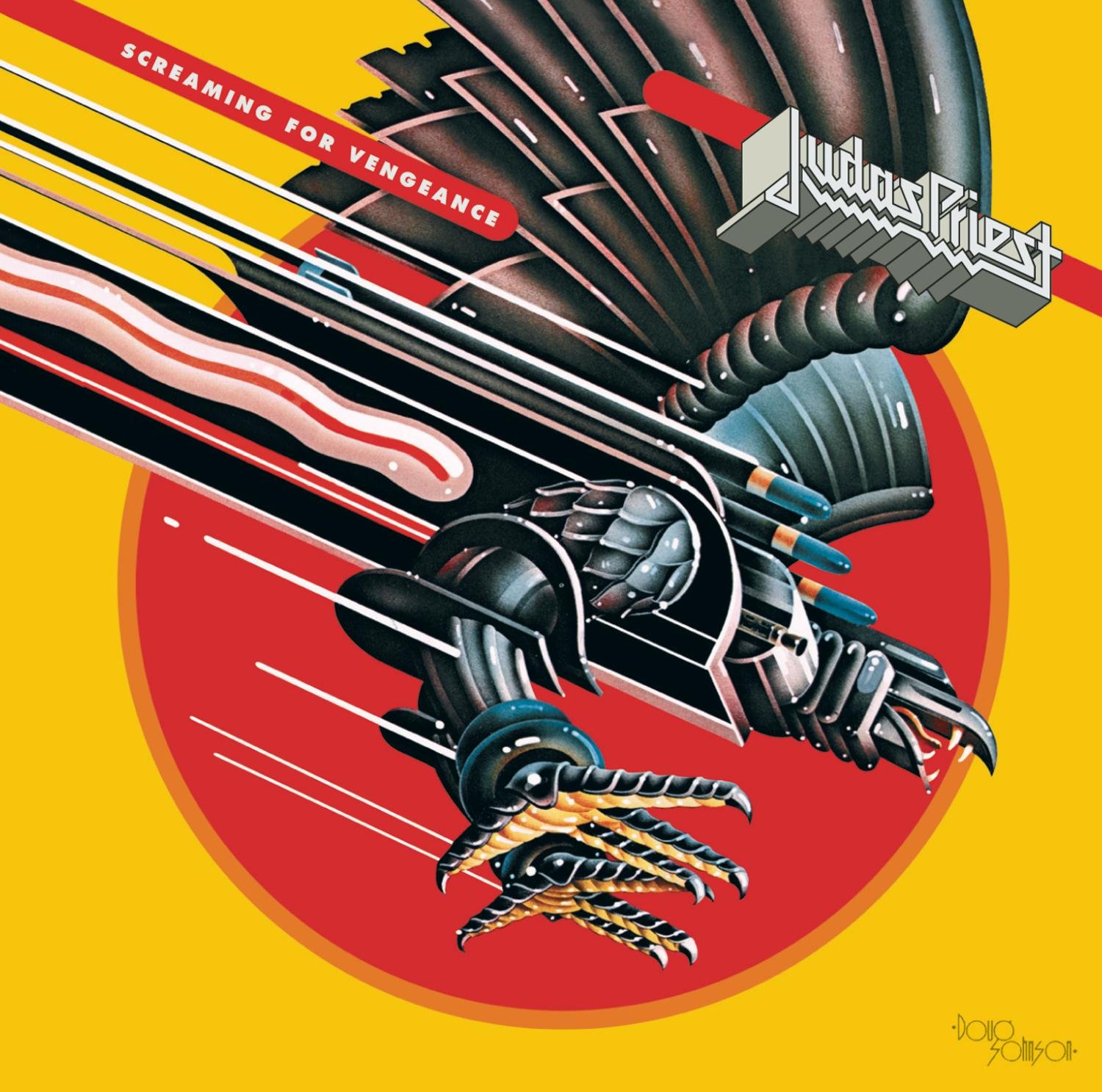
Judas Priest – Screaming For Vengeance (Columbia)
In the world of heavy metal, every single musician in Judas Priest should qualify for sainthood. Just like Black Sabbath built the bridge of metal back in the day, Priest were the first ones to claim the title for themselves, cutting the blues out completely and making something that was a lot more hard edged than what you were hearing from bands like Blue Oyster Cult. Though they rode in just as the New Wave of British Heavy Metal, they could still hang with the new kids on Screaming for Vengeance. As much as British Steel may have converted some of the skeptics with songs like “Breaking the Law,” this record is practically every single thing badass about Priest distilled onto one album.
For the metal ragers, look no further than something like “Riding on the Wind” or “Electric Eye.” As for the more mid-tempo material, you’ve got heavy bangers like “Bloodstone” and the chilling “Fever” towards the end of the record, both of which showcase Rob Halford’s versatility as a vocalist. Even for some of the fair-weather fans that jumped on the heavy metal bandwagon, “You’ve Got Another Thing Comin” is as close to perfect as metal can get in the world of crossover pop tunes. The rest of the ‘80s saw Priest getting swept up in everything from keyboards to lawsuits, but even the new kids like Iron Maiden had to pay respect to the immortal ministers of heavy metal.
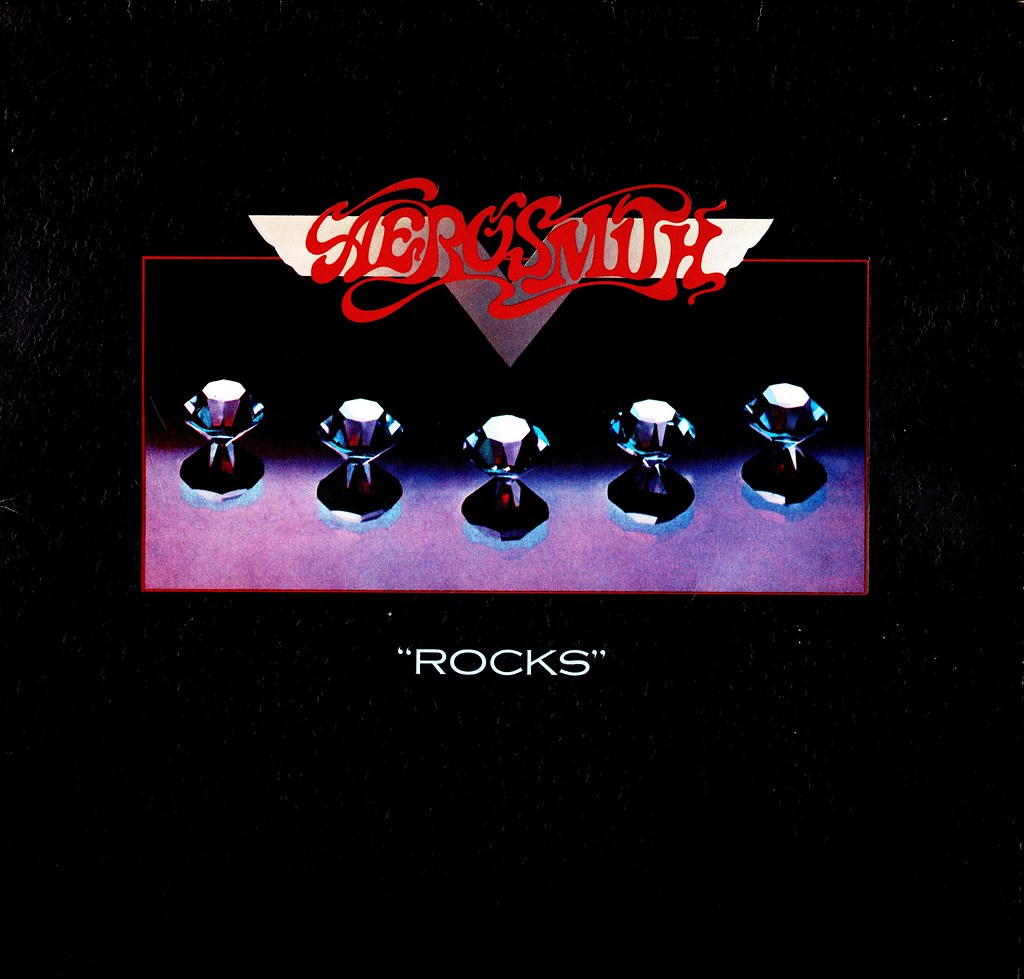
Aerosmith – Rocks (Columbia)
In the early ‘70s, Aerosmith may have been the closest thing we had as a retort to The British Invasion. Just like the Stones had rattled us in the ‘60s with their loud music and bad attitudes, the Bad Boys From Boston felt like seeing Jagger and Richards in a funhouse mirror, taking the same bluesy structure and making it swing on songs like “Walk This Way” and “Sweet Emotion.” And while Rocks definitely has the same single power as Toys in the Attic, these deep cuts are still some of the most savage rock and roll to come out of the ‘70s.
Being their first post-success album, you can really hear the band coming into their own on this record, toying with different soundscapes and sounding heavy as hell from the start of “Back In The Saddle,” with Joe Perry playing a six string bass to get that gravelly tone. Right after the assault of “Last Child” though, there’s no holds barred for the rest of the project, making a borderline punk song on “Rats in the Cellar” and finally dipping their toes into heavy metal on the track “Nobody’s Fault,” which found a second life when Testament did a thrash cover of it a decade after the fact. This was still the peak of the band’s drug use though, and “Combination” might be the most strung out they have ever sounded while still at the top of their game, talking about all of the posh luxuries they have and being too gaunt to fit in their clothes anymore. The band would take a while before cleaning up their act, but this was probably the closest that we got to combining the sounds of the Rolling Stones and Led Zeppelin on a single project.
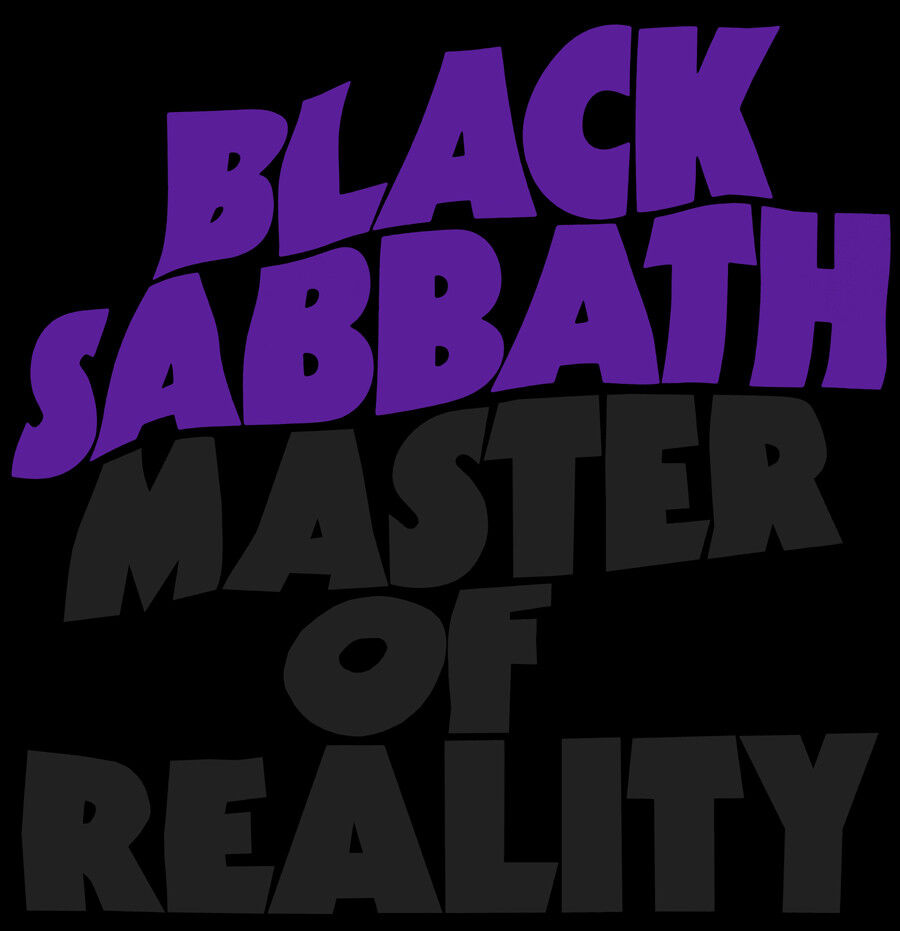
Black Sabbath – Master Of Reality (Vertigo / Warner Bros.)
Most metalheads can probably tell you where they were the minute they heard their first Black Sabbath song. After the Flower Power generation started to wake up from its peace and love coma, Sabbath were one of the first bands to introduce us to what heavy could be, with Tony Iommi tapping into something demonic every time he strapped on a guitar. It’s no big shock that “Iron Man” and “Paranoid” may be remembered more fondly, but Master of Reality is where the real heavy stuff kicks in. While most people remember this as being the first true stoner rock album, that kind of sells the record short on just how punishing it sounded in the ‘70s.
Since some of the biggest names on the radio at the time were Zeppelin and Deep Purple, some of these songs feel like they’re being played from the crypt, like the fuzz soaked sounds of “After Forever” and Ozzy pretty much reading the hippy movement its last rights on “Children Of The Grave.” More than any other Sabbath album though, this record might do the best job at balancing the two halves of what Sabbath stood for, like the Celtic acoustic ballad “Solitude” featuring Ozzy’s dynamic vocal range and Tony turning in a metallic powerhouse on “Into the Void,” a riff both James Hetfield and Eddie Van Halen call one of their favorites. Sabbath had already reached the charts at this point, but Master took them from the bastard children of hard rock to the leaders of all things evil in rock and roll.
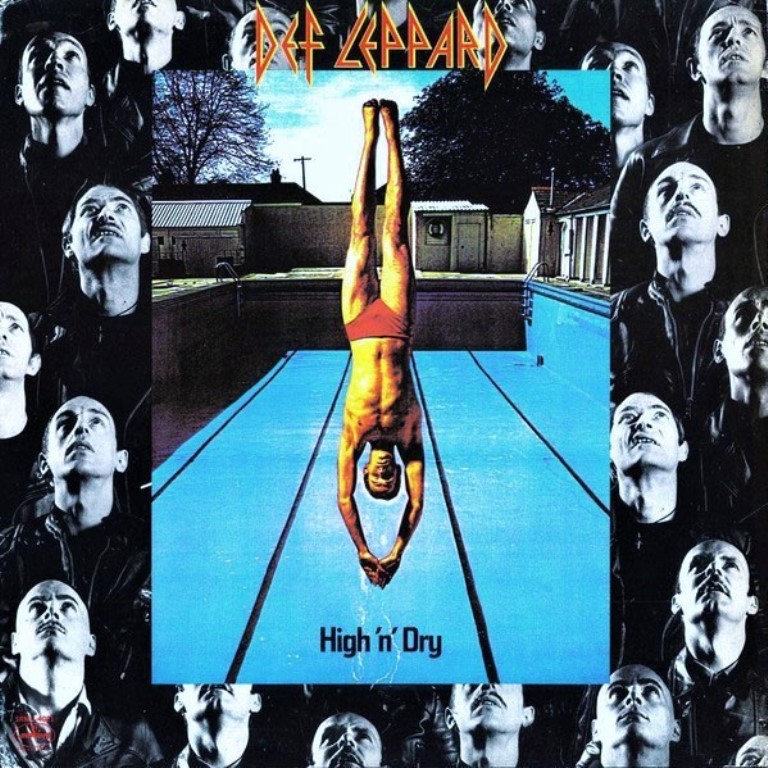
Def Leppard – High ‘N’ Dry (Vertigo)
As the ‘80s kept on rolling, Def Leppard felt like one of the few rock bands that both you and your little sister could like. For all of the guitar licks that turned up on Pyromania and Hysteria, the huge pop hooks and production behind those albums roped in a much different audience, who saw the lads from Sheffield as a more rockified version of Duran Duran. Leppard were always meant to be a bit heavy though, and High ‘N’ Dry may as well be their answer to an album like Highway to Hell. For all of the power that came from songs like “Photograph,” this is the real moment where Leppard recognized their biggest strengths, taking stadium ready riffs and putting some of their fiercest performances onto the tape.
Being the first album they made with Mutt Lange behind the console, the band sounds like a rock and roll machine across this record, taking on the sounds of bands like AC/DC and Van Halen on “Another Hit And Run” and “Let It Go.” You can still see the next phase of their career coming into view with their iconic ballad “Bringin’ On The Heartbreak,” but the back end is where we get some of the more interesting bits of Leppard’s playing, like the power pop sound of “You Got Me Runnin’” and the added drama of the instrumental “Switch 625.” Joe Elliot had made claims that the band didn’t belong in the New Wave of British Heavy Metal wave, but they certainly did have the chops to blow some of the metalheads away.
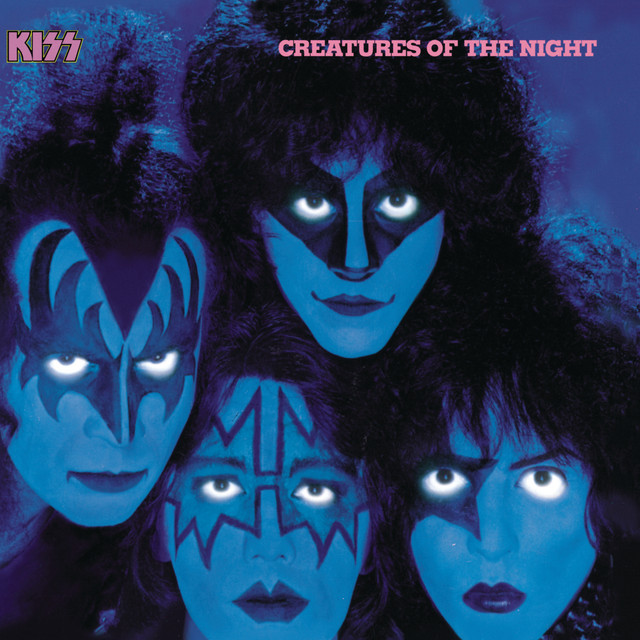
KISS – Creatures Of The Night (Casablanca)
The ‘80s were not exactly the best time to be a member of KISS. Coming off of one of their colossal stinkers in Music From the Elder, the hottest band in the land seemed to be finally tapped out, losing both Ace Frehley and Peter Criss in a matter of 5 years and making the cardinal sin of being taken seriously. Fans really needed a reminder of what made them fans again, and Creatures Of The Night is practically a KISS refresher course. Just like Alive! Had done for them back in the mid ‘70s, Creatures was where KISS started turning in the right direction again, letting Eric Carr demolish his drum kit on songs like the title track, sounding closer to metal than their party all night rock and roll.
Knowing what they were up against, both Paul Stanley and Gene Simmons really stepped up their game here as well, with “Creatures” being one of the greatest songs Paul had written since “Detroit Rock City” and “I Love It Loud” recapturing Gene’s Demon persona just in time for the MTV generation to see him. For as much as this might have been the return of the superheroes, it didn’t translate to sales though, with the band quickly taking off the makeup and reinventing themselves into a glam rock powerhouse in the late ‘80s. If the fans had only showed up for what Creatures had to offer though, we might have been spared some of the more cringy elements that happened just a few albums later.
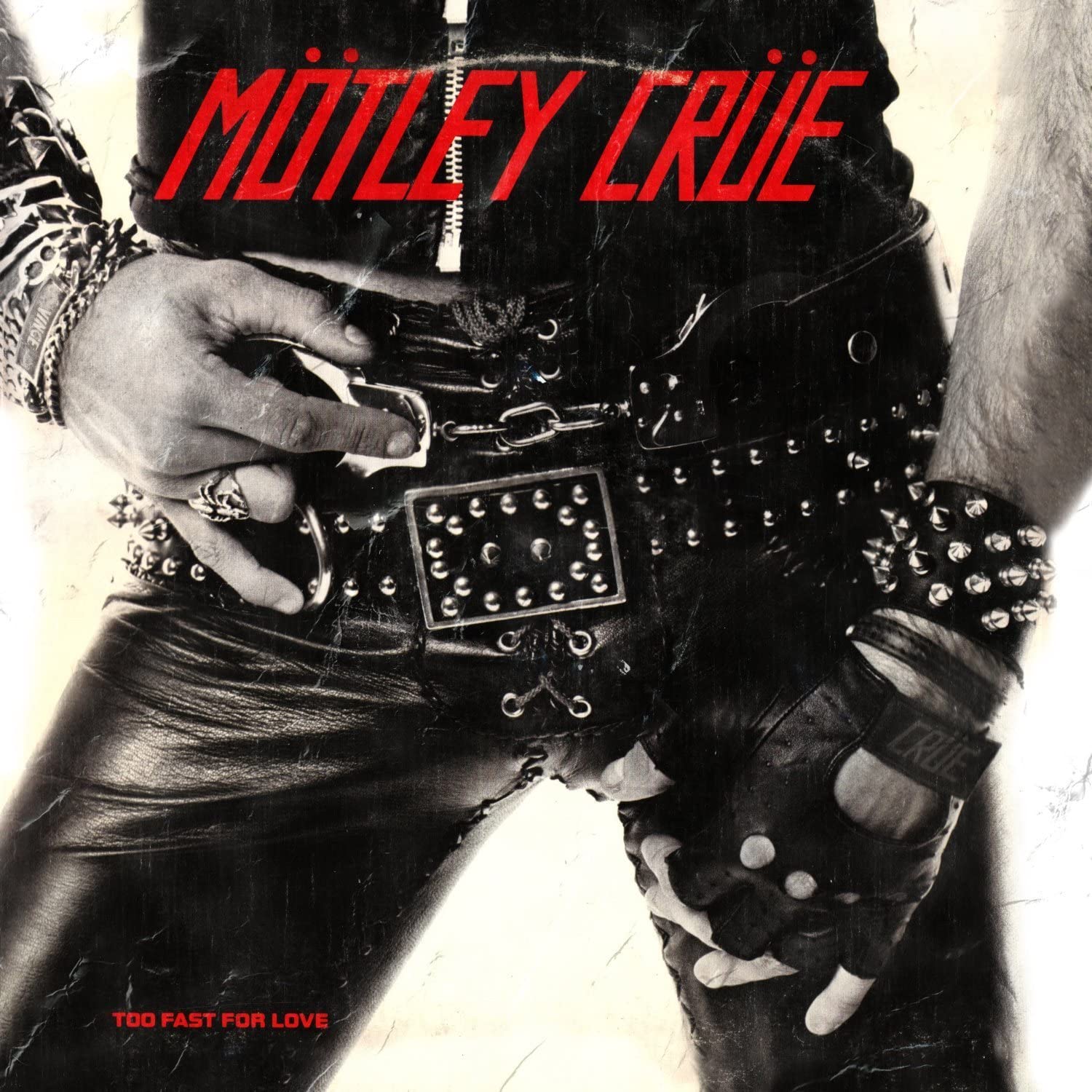
Mötley Crüe – Too Fast For Love (Leathür / Elektra)
If you were to ask the members of Mötley right now, most of them wouldn’t tell you they were the greatest musicians in the world. They were just children of the Sunset Strip, and their entire existence hinged on them making some of the dirtiest street level rock and roll that they knew how. And while the big checks were lining up after Dr. Feelgood, the most street the band ever got was when they still didn’t have a dime to their name. Compared to every other hair metal band that came from Sunset after them, Too Fast For Love is one of the most punk influenced records of the day, with Nikki Sixx channeling bands like the Buzzcocks and the Ramones as much as he did T Rex and David Bowie.
Though there is definitely an attention to spectacle on a record like this, you can hear them turning into a well-oiled machine throughout every song, knowing when to slow things down on songs like “Come On And Dance” and “Starry Eyes” and also turning the intensity all the way up on opener “Live Wire,” which contains a riff so tight that it would make James Hetfield jealous. As much as this might have been a solid album for the time, it was only the building blocks for what Mötley Crüe were going to look like later. They may have stepped up the look a little bit as the years went on, but the band never sounded hungrier than they did right here.
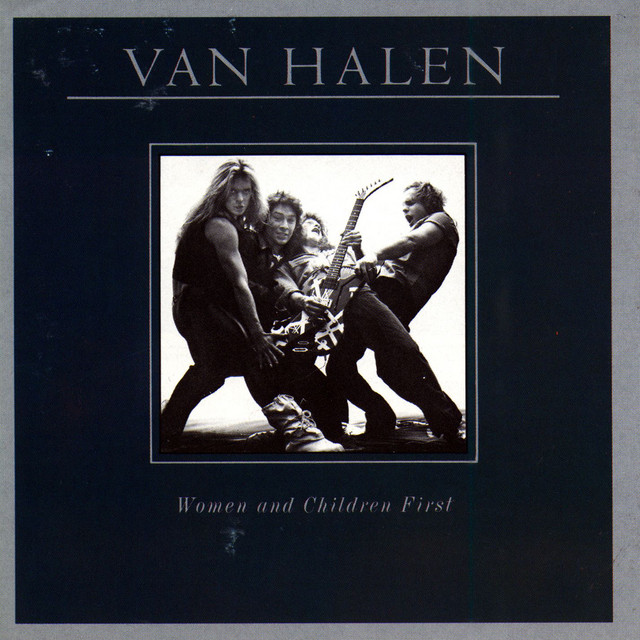
Van Halen – Women And Children First (Warner Bros.)
There’s been an ongoing debate since their first record as to whether Van Halen even qualify as a metal band. They may have had their heavy songs here and there, but the sound of a song like “Ain’t Talkin Bout Love” fit more in the realm of hard rock than metal. These guys did have their metal chops though, and they decided to get nasty on their third record. Right after landing the one two punch of their two self-titled records, Women And Children First is the first time Van Halen took their sound to new heights, bringing in keyboards and making them sound heavy on songs like “And The Cradle Will Rock.”
Though the mention of ‘keyboards’ might trigger alarm bells, Eddie hasn’t put his guitar on the shelf either, making some of the greatest licks of his career on songs like “Fools” and the acoustic song “Could This Be Magic?.” There are still some party jams here, but “Loss Of Control” could easily pass for a high energy Motörhead song, before finally bringing the whole thing to an epic close on “In A Simple Rhyme,” tying together everything memorable about the Roth era of the band. Van Halen might have had more than a few shakeups throughout their career, but this was one of the first times where it felt like we had an honest successor to Led Zeppelin on our hands.